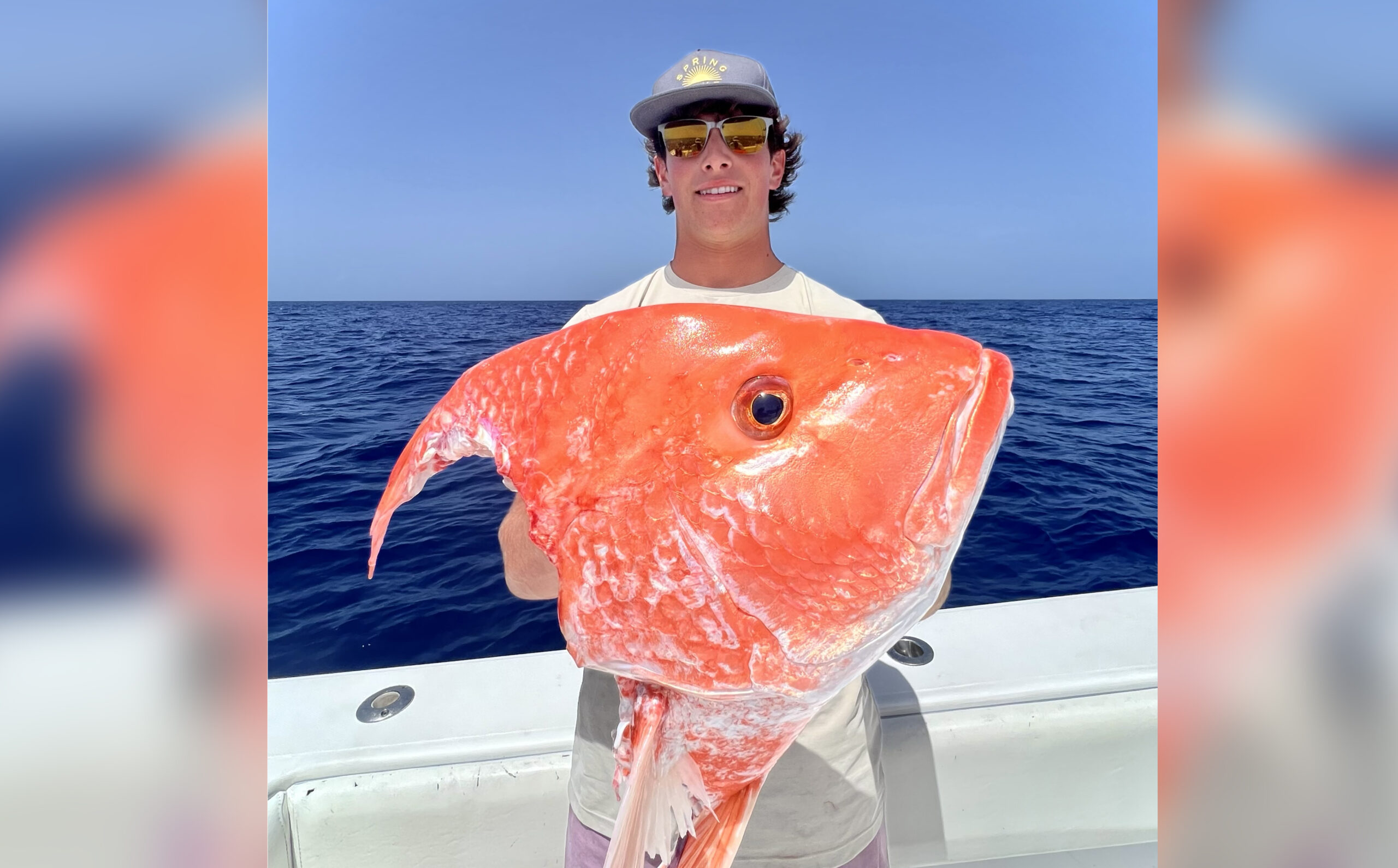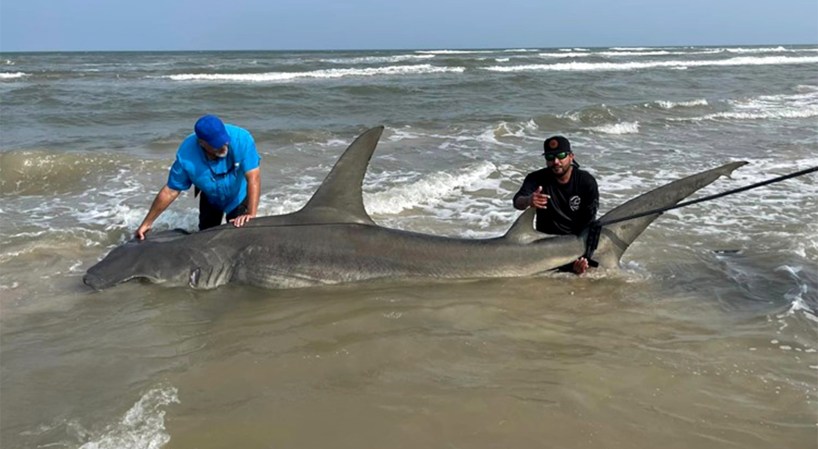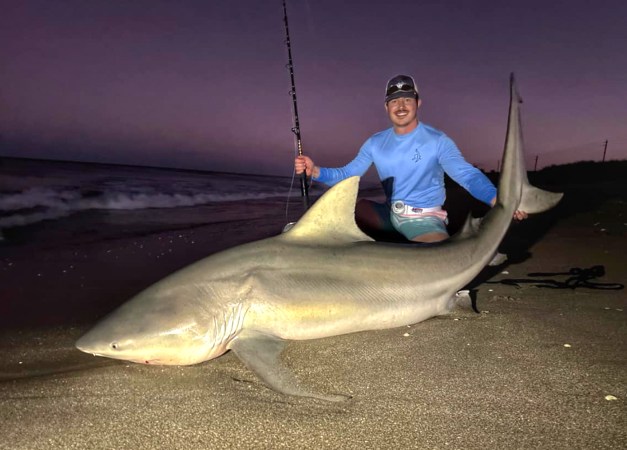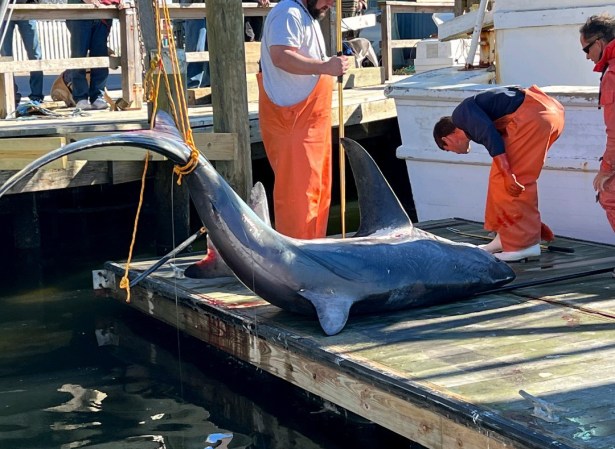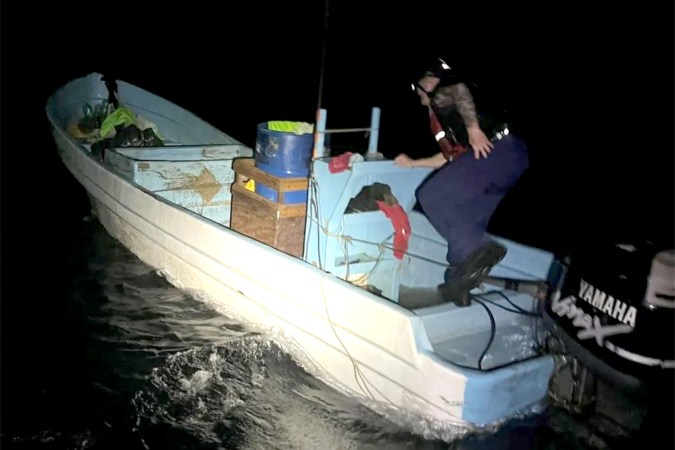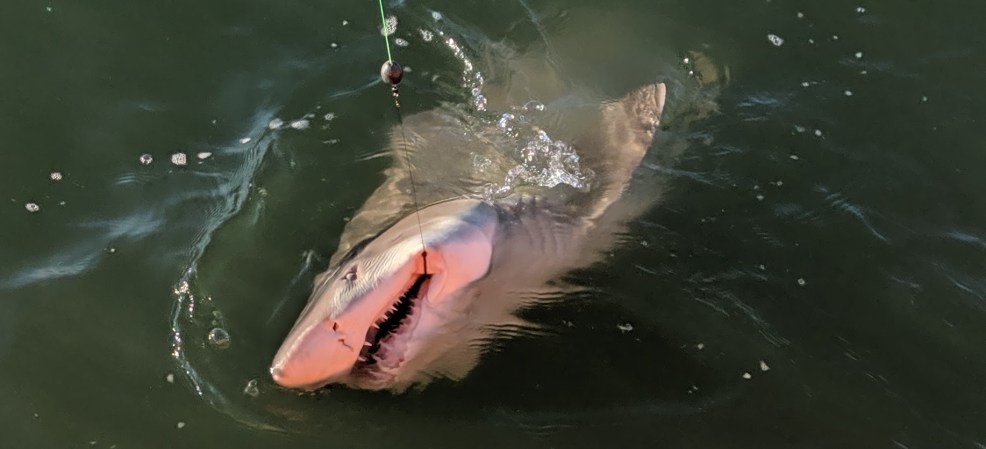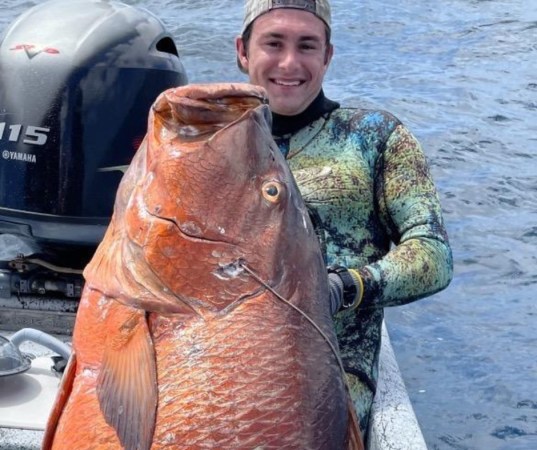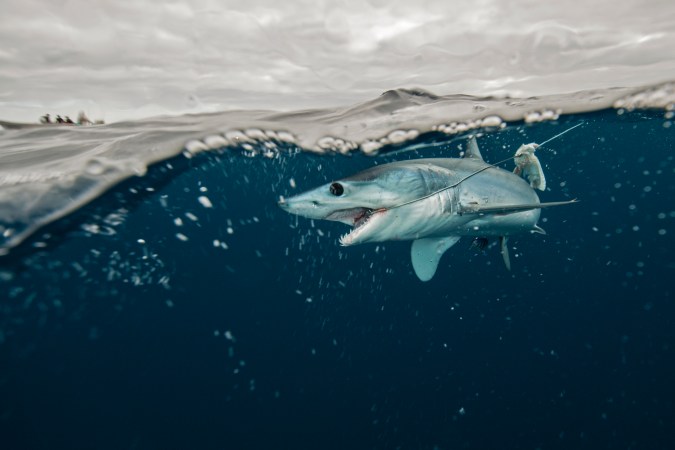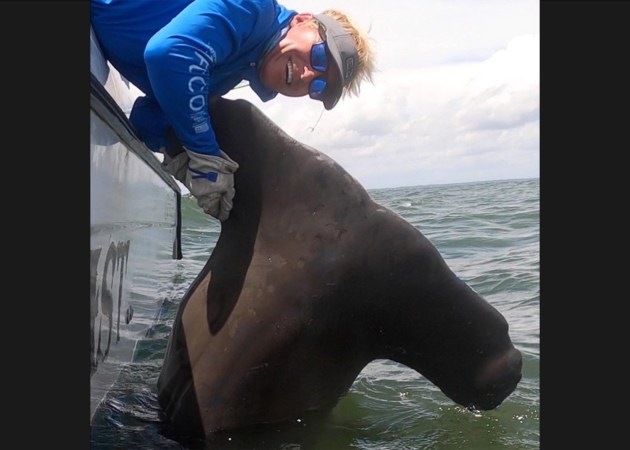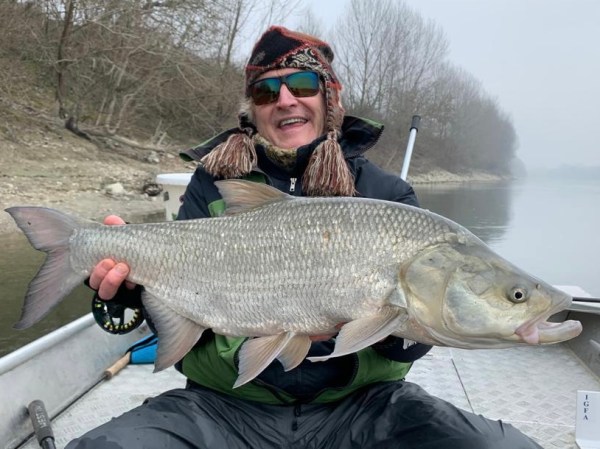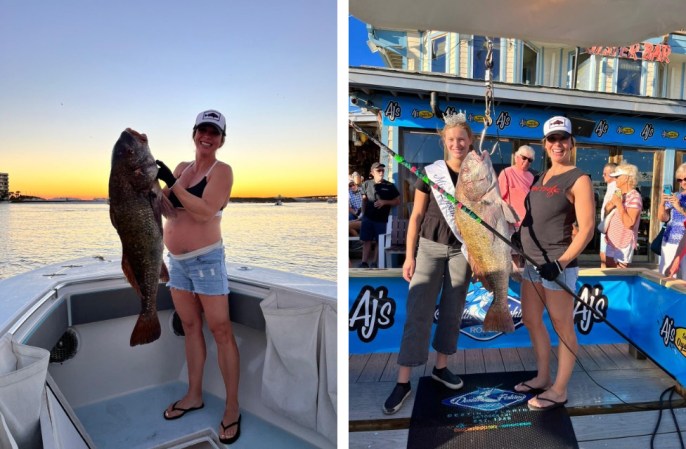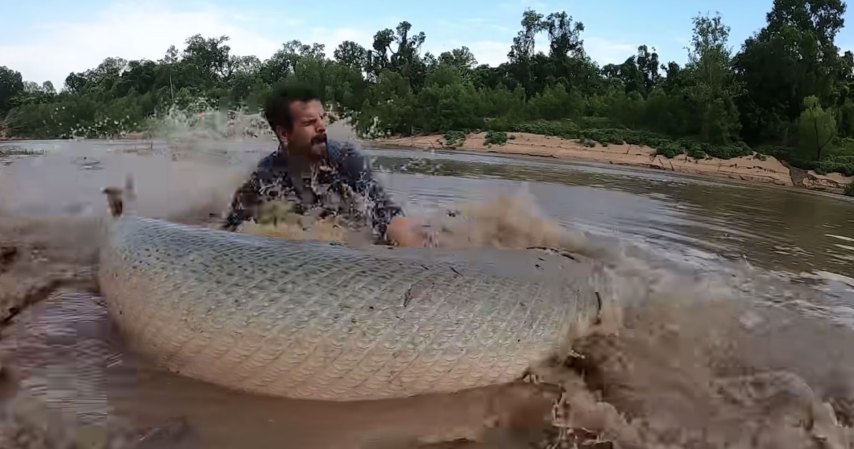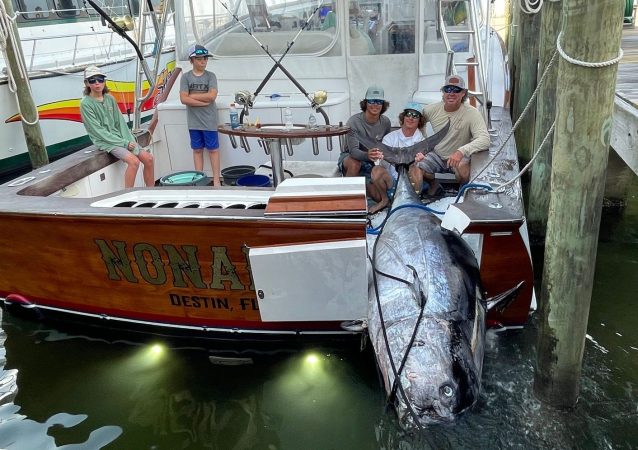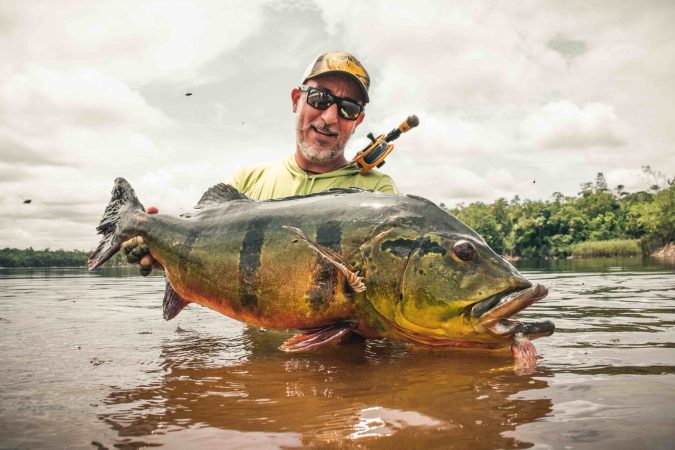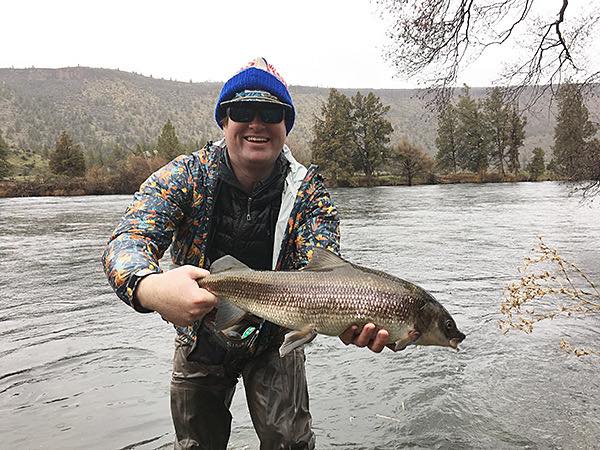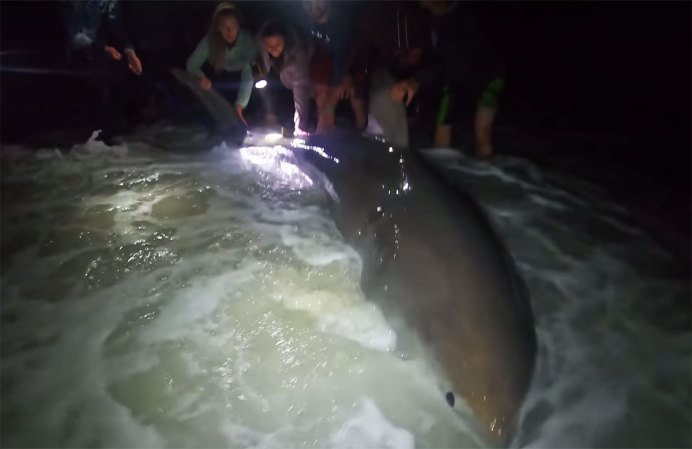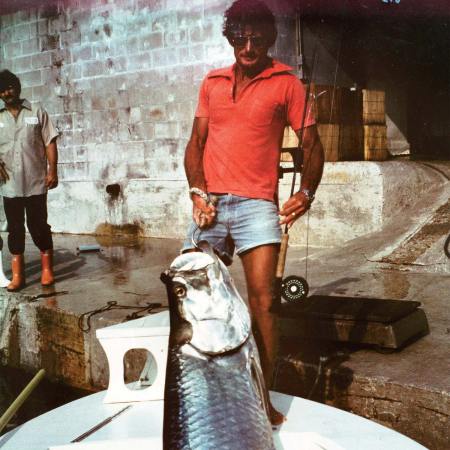This summer 23-year-old Daniel Delph was captaining a charter trip out of the Florida Keys to the Tortugas area near Key West. It was a long, 75-mile run one way, even for DelphFishing’s well-rigged 41-foot Sea Hunter catamaran.
At the Tortugas on July 31, Capt. Daniel and his party of four anglers set up for bottom fishing, and it wasn’t long before one of his anglers hooked a heavy fish at about 300 feet.
“He had just hooked the fish, and sharks got it immediately, right away,” Capt. Billy Delph, Daniel’s father, tells Outdoor Life. (Daniel Delph was running a charter and was not available for an interview.) “All that came up was a massive red head. The other half of that beautiful record red snapper fed the ravenous sharks that are impossible to avoid today … We catch lots of snapper [and] see big ones all the time. Our best guess was that fish whole and intact was about 55 pounds. It likely would have been an IGFA All-Tackle record for the species.”
The current world-record red snapper on the IGFA books is just over 50 pounds. While the July incident was disheartening for both the angler and the Delphs, Billy says it’s an example of a much larger issue that’s devastating to marine fisheries.
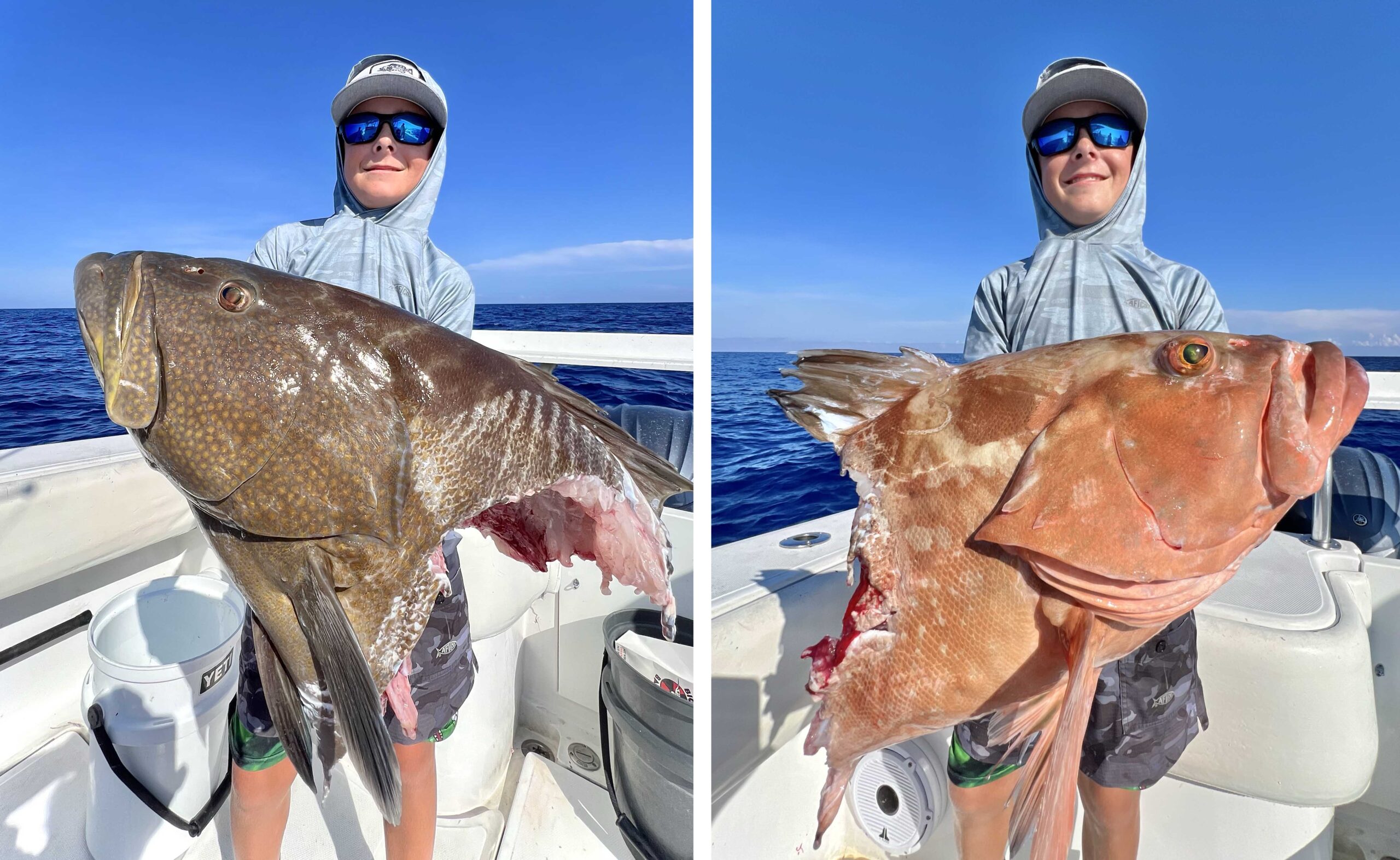
“Every year [becomes] the worst year we’ve ever experienced with sharks mutilating and taking our hooked fish,” Billy explains. “And that’s been going on for a decade. Every year [is] worse than the last because sharks are overpopulated and chomp about 80 percent of the fish we hook.”
DelphFishing is chiefly an offshore, deep-water Key West operation. So the sharks they commonly encounter are deep-water species such as sandbars and duskys in the 200-pound and larger range. It’s not uncommon for them to encounter a wide range of species, including great whites.
Much the same problem exists with abundant sharks throughout the coastal South—from the Carolinas south to Florida, around the Florida peninsula, through Florida Bay and into the Gulf of Mexico to Louisiana and Texas. Louisiana recently increased its commercial shark limits to account for the rising shark numbers.
“Back in the 1980s and 1990s, we had trouble with sharks taking fish occasionally,” says Billy, 43. “But today it’s 200 percent worse than it ever was. It’s devastating to our marine fisheries. It’s just so frustrating.”
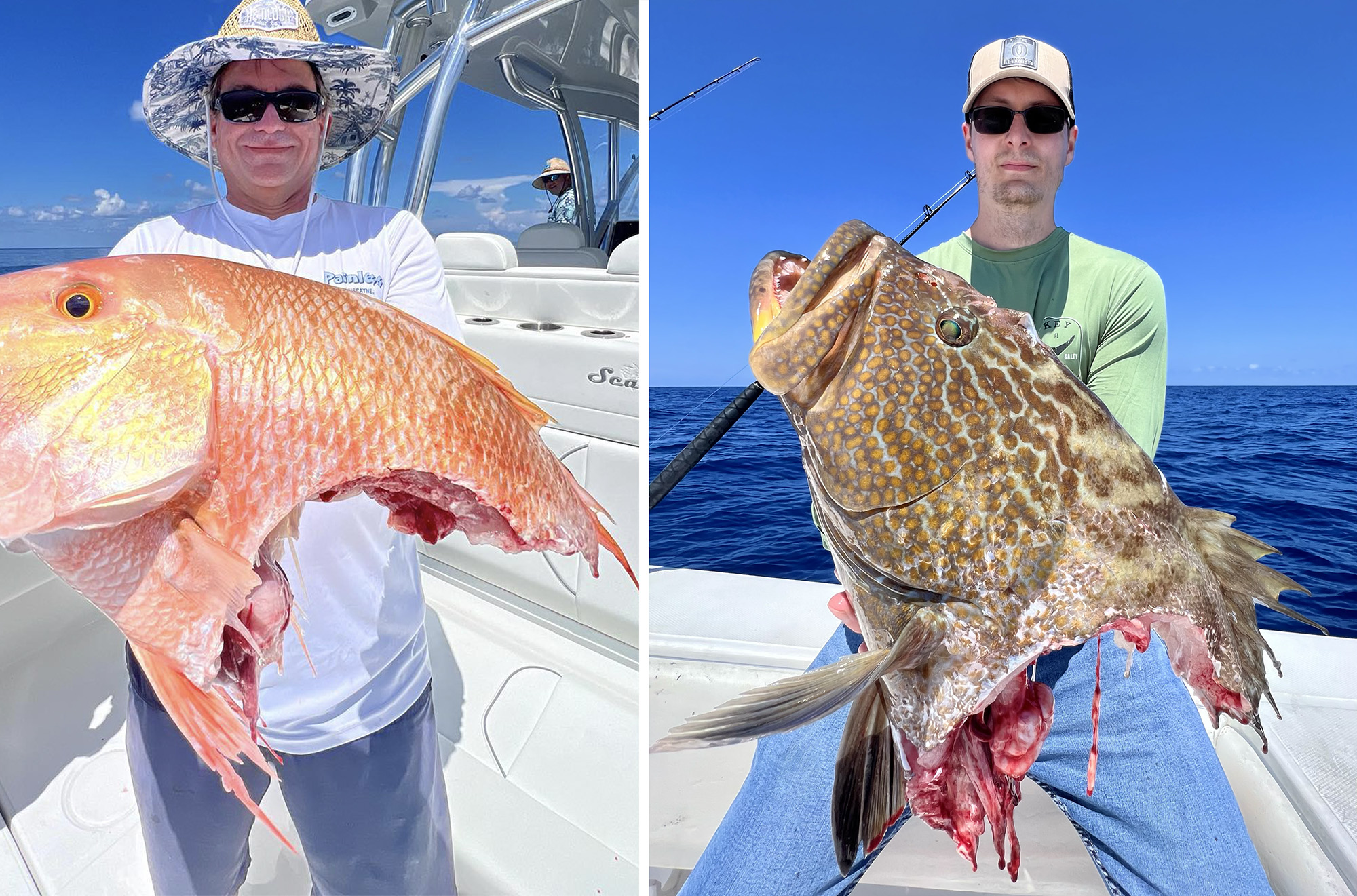
Laws protecting sharks from harvest have been enacted throughout much of their range, especially in U.S. waters where federal and state laws carefully regulate most species. Many anglers believe such strict shark harvest regulations have surpassed their usefulness at conserving sharks and moved from scientific management to protection ideology.
“So many people think sharks are endangered and that’s not the case,” Billy continues. “We work hard to avoid sharks. We never anchor, and we never fish more than 10 to 15 minutes in one spot—we must move around to avoid sharks. But it doesn’t matter where you fish, sharks are everywhere.”
Read Next: Canadian Angler Hooks a Great White Shark from a Kayak
Billy says sharks have even altered his fishing business operation.
“The biggest threats to our angling and guiding business are the economy, fishery closures by federal agencies, and sharks … At times shark depredation on our hooked fish is so consistently devastating that we’ve quit fishing for snapper or grouper and changed angling areas and tactics for other species like swordfish. … It makes no sense to hook snapper or grouper just to feed them to sharks.”

